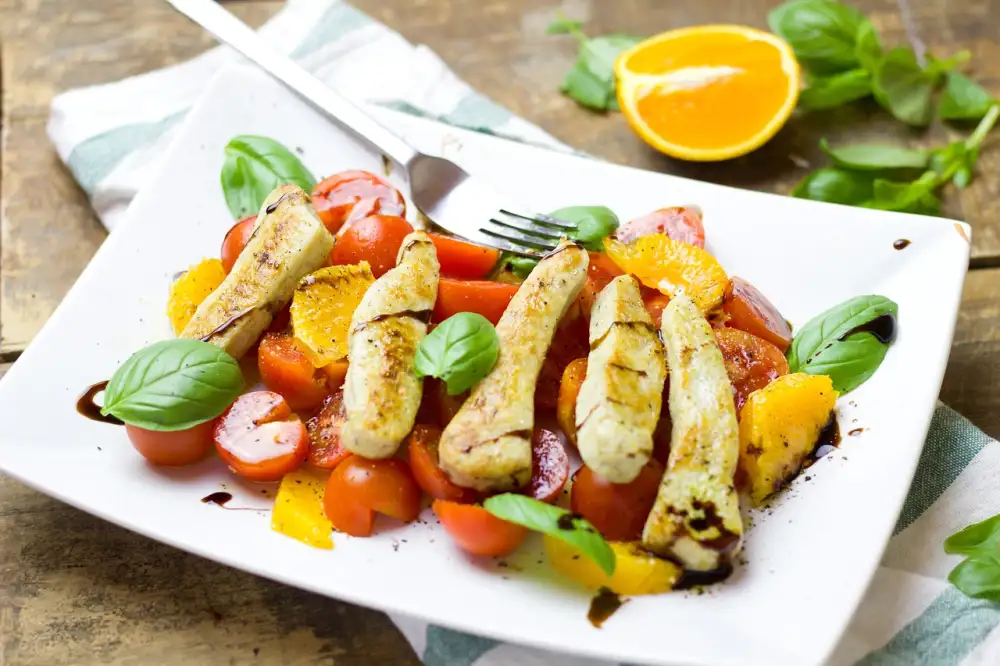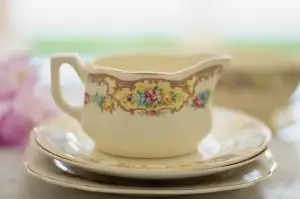Delicious Dry White Wine Substitutes: Unleash Your Culinary Creativity with Perfect Cooking Alternatives

Dry white wine is a popular ingredient in many recipes, adding depth and complexity to dishes. However, not everyone has access to or prefers to use alcohol in their cooking. Fortunately, there are several delicious alternatives that can be used as substitutes for dry white wine. These alternatives not only provide similar flavors but also offer unique twists to enhance your culinary creations. In this article, we will explore some fantastic options that will unleash your culinary creativity and take your dishes to new heights. Whether you're looking for a non-alcoholic option or simply want to try something different, these dry white wine substitutes are sure to impress your taste buds and elevate your cooking skills. So let's dive in and discover the perfect alternatives for cooking with dry white wine!
Option 1: Vegetable or Chicken Broth
When it comes to finding a suitable substitute for dry white wine in your cooking, vegetable or chicken broth is an excellent option. These flavorful broths can add depth and richness to your dishes, just like dry white wine does.
Vegetable broth works well in vegetarian or vegan recipes, while chicken broth adds a savory note to meat-based dishes. Both options provide a similar level of moisture and flavor enhancement as dry white wine.
To use vegetable or chicken broth as a substitute, simply replace the amount of wine called for in the recipe with an equal amount of broth. This will ensure that your dish maintains its desired consistency and taste.
Keep in mind that while vegetable or chicken broth can mimic the flavors of dry white wine, they won't provide the same acidity. If acidity is crucial to your recipe, you may need to add a splash of vinegar or lemon juice to achieve the desired balance.
Overall, using vegetable or chicken broth as a substitute for dry white wine is a versatile and accessible option that can elevate your culinary creations without compromising on taste.
Option 2: Apple Cider Vinegar
Another excellent substitute for dry white wine in cooking is apple cider vinegar. Its tangy and slightly sweet flavor can add a unique depth to your dishes. When using apple cider vinegar as a substitute, it's important to dilute it with water to achieve the desired taste.
To replace one cup of dry white wine, mix three tablespoons of apple cider vinegar with one cup of water. This combination will provide a similar acidity and flavor profile to dry white wine without overpowering the dish.
Apple cider vinegar works well in recipes that call for white wine in marinades, sauces, dressings, and braises. It pairs particularly well with poultry, pork, and vegetables. The slight sweetness of the vinegar can help balance out savory flavors and add a pleasant tanginess to your dishes.
Keep in mind that apple cider vinegar has a distinct flavor, so it may not be suitable for all recipes. It's always best to taste as you go when substituting ingredients to ensure the final result meets your expectations.
Next time you find yourself without dry white wine in your pantry, reach for apple cider vinegar as a flavorful alternative that will enhance your culinary creations.
Option 3: White Grape Juice
White grape juice is an excellent substitute for dry white wine in cooking. It provides a similar level of sweetness and acidity, adding depth and flavor to your dishes. When using white grape juice as a substitute, make sure to choose a high-quality, 100% pure juice without any added sugar or artificial flavors.
White grape juice works well in recipes that call for dry white wine, such as sauces, marinades, and deglazing pans. It adds a fruity and slightly tart note to the dish, enhancing the overall taste profile. Keep in mind that since white grape juice is sweeter than wine, you may need to adjust the amount of sugar or other sweeteners in the recipe accordingly.
To use white grape juice as a substitute for dry white wine, simply replace it with an equal amount. For example, if a recipe calls for 1/2 cup of white wine, use 1/2 cup of white grape juice instead. This substitution will ensure that you maintain the desired flavor balance in your dish.
White grape juice is not only a great alternative for those who prefer non-alcoholic options but also adds a unique twist to traditional recipes. Its natural sweetness and refreshing taste can elevate both savory and sweet dishes alike.
Experiment with using white grape juice in your favorite recipes and unleash your culinary creativity. Whether you're making a creamy pasta sauce or baking a delicious dessert, this substitute will provide the perfect balance of flavors without compromising on taste.
So next time you find yourself without dry white wine in the kitchen, reach for some high-quality white grape juice instead. Your dishes will still have that delightful touch of acidity and fruitiness that dry white wine brings while keeping them alcohol-free. Enjoy exploring this versatile option and take your cooking to new heights!
Option 4: Lemon Juice
Lemon juice is a versatile and tangy substitute for dry white wine in cooking. Its bright acidity adds a refreshing flavor to dishes, making it an excellent alternative for those who prefer a citrusy twist. When using lemon juice as a substitute, keep in mind that it can be quite strong, so start with a smaller amount and adjust according to your taste.
Lemon juice works particularly well in seafood recipes, such as shrimp scampi or fish piccata. The acidity of the lemon juice helps to cut through the richness of the dish and adds a zesty note. It also pairs beautifully with chicken, enhancing flavors in dishes like lemon chicken or creamy lemon garlic pasta.
To use lemon juice as a substitute for dry white wine, simply replace the wine called for in the recipe with an equal amount of lemon juice. If the recipe calls for a specific quantity of wine, start by adding half that amount of lemon juice and taste as you go. You can always add more if needed.
Keep in mind that while lemon juice can mimic the acidity of white wine, it lacks the complexity and depth of flavor that wine brings to a dish. However, if you're looking for a non-alcoholic option or simply prefer the citrusy taste, lemon juice is an excellent choice.
Experiment with different recipes and let your culinary creativity shine by using lemon juice as a substitute for dry white wine. Its vibrant flavor will add brightness to your dishes and leave your taste buds craving more. So go ahead and unleash your inner chef with this delicious alternative!
Option 5: White Wine Vinegar
White wine vinegar is another excellent substitute for dry white wine in cooking. It has a similar tangy and acidic flavor that can enhance the taste of your dishes. When using white wine vinegar as a substitute, it is important to dilute it with water to achieve a milder taste.
To replace one cup of dry white wine, mix three-fourths cup of white wine vinegar with one-fourth cup of water. This ratio will help balance the acidity and prevent overpowering the dish. White wine vinegar works well in sauces, marinades, and dressings, giving them a bright and zesty flavor.
Keep in mind that white wine vinegar may not provide the same depth and complexity as dry white wine, but it can still add a delicious tanginess to your recipes. Experiment with different amounts to find the perfect balance for your dish.
Whether you're making a creamy sauce or adding flavor to roasted vegetables, white wine vinegar can be an excellent alternative when you don't have dry white wine on hand. Its versatility makes it a pantry staple for any home cook looking to unleash their culinary creativity.
Option 6: Non-alcoholic White Wine
For those who prefer to avoid alcohol altogether, non-alcoholic white wine is an excellent substitute for dry white wine in cooking. Made from grapes and processed to remove the alcohol content, non-alcoholic white wine retains the flavors and aromas of traditional wine without the intoxicating effects.
When using non-alcoholic white wine as a substitute, it's important to choose a high-quality brand that closely mimics the taste of dry white wine. Look for options that have been aged or fermented to develop complex flavors similar to those found in traditional wines.
Non-alcoholic white wine can be used in a variety of recipes, including sauces, marinades, and risottos. Its acidity and fruity undertones add depth and complexity to dishes, enhancing their overall flavor profile.
To use non-alcoholic white wine as a substitute, simply replace the amount of dry white wine called for in your recipe with an equal amount of non-alcoholic white wine. Keep in mind that since non-alcoholic wines may have slightly different flavor profiles than their alcoholic counterparts, you may need to adjust other seasonings or ingredients accordingly.
One advantage of using non-alcoholic white wine is that it can be enjoyed by everyone at the table, including those who are abstaining from alcohol or have dietary restrictions. It allows you to create delicious meals that cater to a wide range of preferences without compromising on taste.
So whether you're looking for a suitable alternative due to personal preference or dietary restrictions, non-alcoholic white wine is an excellent option. It offers all the flavors and characteristics of dry white wine without any alcohol content, allowing you to unleash your culinary creativity with confidence.
In conclusion, there are plenty of delicious dry white wine substitutes that can elevate your culinary creations. Whether you prefer a vegetable or chicken broth for a savory touch, apple cider vinegar for a tangy twist, white grape juice for a hint of sweetness, lemon juice for a refreshing kick, white wine vinegar for acidity, or non-alcoholic white wine for an authentic flavor, these alternatives offer endless possibilities. By exploring these options, you can unleash your culinary creativity and create dishes that are just as flavorful and delightful as those made with traditional dry white wine. So go ahead and experiment with these substitutes to enhance your recipes and impress your guests with your cooking expertise!
Published: 26. 11. 2023
Category: Recipes



